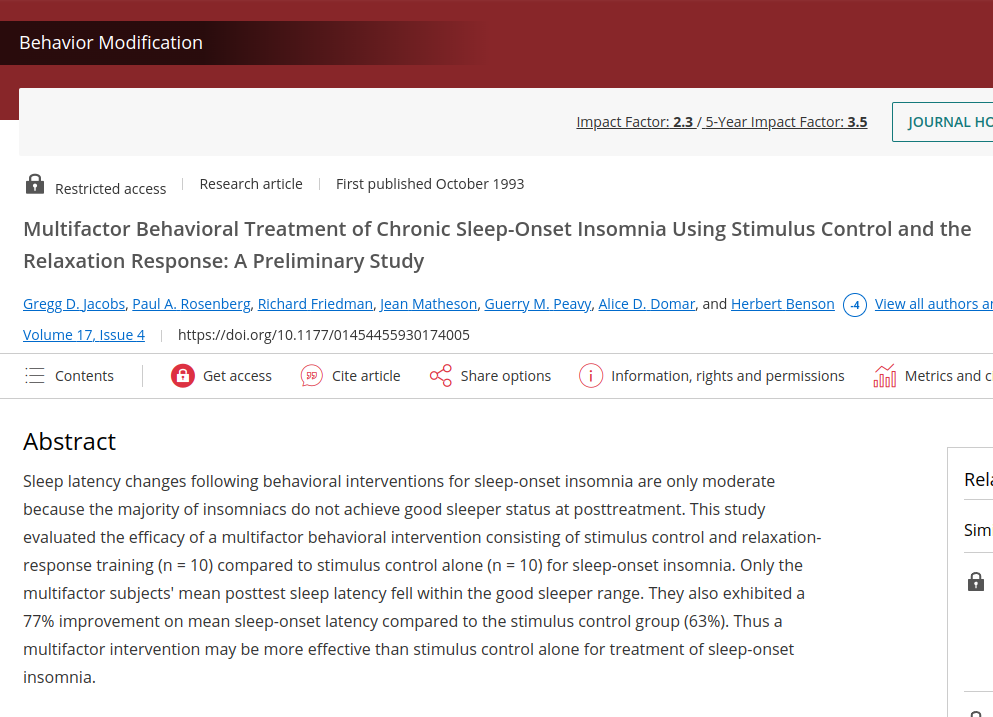The majority of individuals with insomnia treated with single behavioral interventions do not achieve normal sleep. In this study, individuals with chronic sleep-onset insomnia (n=12) were treated with a sequentially administered multifactor behavioral intervention consisting of sleep restriction, modified stimulus control, and relaxation training. They were compared to age- and sex-matched normal sleepers (n=14) prior to and following treatment using home-based polysomnography and power spectral analysis of pre-sleep EEG activity as dependent measures. Individuals with insomnia showed highly significant beneficial changes on EEG measures of insomnia, including a 75% reduction in sleep-onset latency, and did not differ from normal sleepers at posttreatment. Individuals with insomnia exhibited greater pre-sleep CNS arousal than normal sleepers at pretreatment and showed a significant reduction on this measure at posttreatment. Objective improvements in sleep were accompanied by significant improvements in self-report measures of sleep and mood. We conclude that a multifactor behavioral intervention consisting of sleep restriction, modified stimulus control, and relaxation response training is highly effective in moving individuals with chronic sleep-onset insomnia into the range of normal sleepers and may achieve its effect, in part, by reducing pre-sleep CNS arousal.
Home-based central nervous system assessment of a multifactor behavioral intervention for chronic sleep-onset insomnia
Publication
Behavior Therapy
Volume 24, Issue 1, Winter 1993, Pages 159-174
Abstract
Web and Email Links
Related Listings
Journal
The Lancet
A wakeful hypometabolic state may be induced by simple, non-cultic mental techniques or by traditional meditational practices. The hypometabolic state seems to represent an integrated hypothalamic response ("relaxation response") which is consistent with a state of decreased sympathetic-nervous-system activity. A prospective investigation was designed to test whether regular elicitation of the relaxation response might lower blood-pressures in hypertensive patients who were maintained […]
Journal
J Occup Med
The efficacy of meditation-relaxation techniques has been widely researched in the laboratory, but their effectiveness for management of stress in organizational settings is still relatively unexplored. The present study compared relaxation and control conditions as part of a program of stress-reduction in industry. A total of 154 New York Telephone employees self-selected for stress learned one of three techniques--clinically standardized meditation (CSM), respiratory one method medi […]
Journal
Behavioral Medicine
To clarify the mechanisms of gender-related mind/body relationships, the authors analyzed the characteristics of 1,132 outpatients (848 women and 284 men) attending a mind/body medicine clinic. At entry in the program, the patients completed the Medical Symptom Checklist, Symptom Checklist-90 revised (SCL-90R), and Stress Perception Scale. Women reported 9 out of 12 symptoms (fatigue, insomnia, headache, back pain, joint or limb pain, palpitations, constipation, nausea, and dizziness) […]

